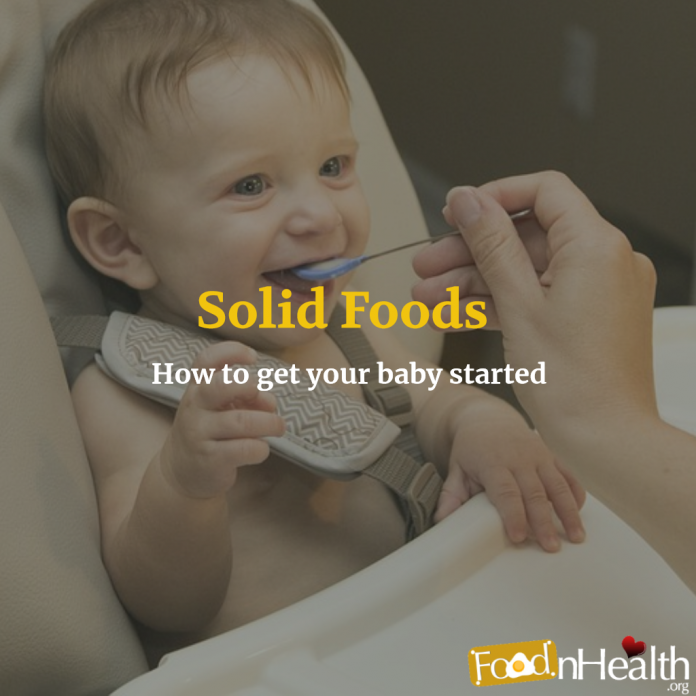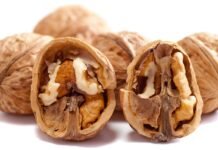Watching your babies transition from a bottle of milk to mashed bananas is an amazing experience as a parent. The mess created all around while they are eating is a captivating sight. But, certain things have to be kept in mind before taking the first step in this direction. Not all babies respond in the same way to solid food. The timing and choice of food matter the most, amongst other things.
This blog will provide you with eight tips to make this process smooth and easy for your little one.
Talk to Your Paediatrician
A pediatrician is the best person to guide when it comes to starting solids. He can familiarize you with the basic recommendations of the American Academy of Pediatrics (AAP). You may clarify the following points with your doctor:
- Common signs that your baby is ready for solids.
- The portion size of each meal.
- Timing the meals efficiently.
- In what order you should feed solid food.
- General safety precautions that you should follow.
- Iron and vitamin requirements.
Some of these tips will be discussed in detail in the later sections of this blog.
When to Start With Solid Food
The rate of development in babies differs slightly. AAP recommends starting solid food when babies are around 6 months old. At this age, the mouth reflexes are developed so that they can swallow solid food easily.
According to AAP, breastfeeding should be consistent for about 6 months. Even after you add solid food to your baby’s diet, continue the process at least till 12 months.
How to Feed Them
Feeding them for the first time with your hands is an exciting thing to do. You should begin with half a spoonful or less and engage in a conversation with your baby alongside. (“Baby, this looks so yummy!”). Your baby might initially get confused and reject the food altogether.
One way to feed solids for the first time is to give your baby a combination of breast milk and baby food. Then switch to other food types and repeat this cycle for a month or so. This will help your baby to adapt to solid food gradually.
Some of you might put cereal in a bottle and give it to the baby. This is not advisable as it could cause the baby to choke.
Choice and Order of Food
There is no written rule when it comes to the order of solid food while feeding babies. Normally, single-grain cereals are introduced first and followed by the multi-grain ones.
Once your child is comfortable with a particular type of food, you can switch to another in a step-by-step manner. Choose food that is rich in iron and zinc along with other essential nutrients. The best baby food formulas have a balanced ratio of such supplements.
Finger food can be started when the baby turns 8 months old. This is normally the time when your baby can sit up and bring her hands or other objects to her mouth. Whatever you give to your baby should be soft, easy to swallow, and cut into small pieces. This will prevent choking and aid the process of digestion. Some of the examples are small pieces of banana, scrambled eggs, well-cooked pasta, cut potatoes, and peas.
Keep an Eye for Food Allergies
Food allergies are usually encountered by parents in some of the first feeds. Severe allergic reactions such as hives, difficulty in breathing, and swelling are visible immediately after food consumption. Less severe reactions include eczema, diarrhea and constipation.
In such circumstances, immediate medical attention is necessary to understand the root cause of these reactions and treat it. You should also wait for a few days before introducing a new food in your baby’s diet.
Avoid Fruit Juices
Babies should be kept away from fruit juices for at least the first 12 months. It reduces their appetite for other nutritious food. Too much juice is known to cause diaper rash, diarrhea or excessive weight gain in babies. Tooth decay is also a common problem with juices.
When babies turn a year old, give them only 100% fruit juice up to 3 years of age. The quantity should be limited to 4 ounces a day and must be served only during meal times.
Avoid this food initially
There are certain risks associated with some food and they must be avoided completely in the initial days. They are as follows:
Honey: It can cause botulism, a serious illness if introduced too early.
Cow’s Milk: Continue with breast milk and formula until your baby is a year old. However, it’s fine to use cow’s milk in cooking or baking.
Nuts, Popcorn, Whole Grapes, and Globs of Nut Butter: These food are choking hazards.
Home-made spinach, beets, carrots, green beans or squash: They might contain nitrates to cause a blood disorder called methemoglobinemia.
Prepare a Mealtime Routine
A set routine can go a long way in helping your kid adjust with his eating habits. This routine should help him to focus on eating.
Start a routine where you wash his hands, soothe him, and then settle him down for a meal. Calmness should be maintained by turning off the TV or any loud music. “This will help your baby become conscious of eating and learn to recognize when he’s full,” says Marilyn Tanner, RD, a spokesperson for the American Dietetic Association.
On an Ending Note
You must be very careful when starting solid food. Many things could go wrong in this process and it takes time to see good results. Following the right set of advice becomes necessary when introducing little kids to newer forms of taste and recipes. So use these eight tips to keep your child healthy and enjoy the joy of parenting.


























